Why Does My Cat Meow So Much After Having Kittens?
Tagline:
Find out why cats meow more when they have kittens!
Introduction
It’s a well-known fact that cats meow quite a lot, but most pet owners question why the meowing seems to increase when their cats have given birth. So, why does my cat meow so much after having kittens?
Q&A
Q: What causes cats to meow more when they have kittens?
A: One of the main reasons cats meow more after they have kittens is because they need help caring for them. This can include anything from extra food or water to cleaning the kittens or just being able to have a break from caring for them.
Q: How do cats communicate their needs?
A: Stressed or anxious cats might develop excessive meowing behavior as a way of communicating their needs to their owners. The meowing might represent their desire to have someone take care of their kittens.
Q: Do cats need more food or water when they give birth?
A: Absolutely! Cats will need more food and water when they are nursing, especially in the few weeks after giving birth. Make sure to provide them with plenty of food and keep their water bowl topped up.
Conclusion
It can be concerning when cats meow more after they have had kittens, but rest assured that it is usually a normal part of their behavior. Cats meow when they need help caring for their kittens, whether that’s extra food, water, or just some cuddles and attention!
Key Points:
-
- Cats meow more after they have kittens because they need help caring for them.
-
- Stressed cats might use meowing as a way to communicate their needs.
-
- Make sure to give cats plenty of extra food and water when they are nursing.
What other behaviors do cats exhibit after giving birth to kittens?
Other behaviors cats exhibit after giving birth to kittens include:
-Purring and licking the newborns
-Mothering the kittens and caring for them closely
-Nursing them and teaching them how to groom themselves
-Responding to their cries and protecting them from anything that may harm them
-Carrying them to a safe and warm place
-Eating more food to create enough milk for their offspring
-Loud vocalizations that call for the kittens’ attention and that let other cats know the litter is theirs.
What age should kittens be separated from their mother?
Kittens should be separated from their mother when they are around 8-10 weeks old. At this age, they will have the necessary skills and attributes to start living on their own. It is important that owners monitor the kittens and the mother cat during this period to ensure the kittens are healthy and safe. Cats are known for their vocal nature, and one of the most common sounds they make is the meow. It is especially common for a mother cat to meow excessively after giving birth to kittens. While it may be annoying for the pet owner, there is a reason why cats meow more than usual when they have just had kittens.
A mother cat’s meowing after giving birth is a way for her to communicate with her kittens. The meows are used to call the kittens to her, help them recognize her, and establish a bond between them. This is especially important for the kittens to remember their mother’s scent and voice so that they can follow her and nurse.
Mother cats also meow more after giving birth to let their kittens know that they are in a safe place. It is a way for the mother to reassure the kittens that she is there to take care of them. The meows also help the kittens feel safe and secure in the nest they were born in.
In addition, the mother cat’s meows are a way for her to tell her kittens to stay put and not wander away. This is an important behavior for the kittens to learn so that they do not get lost or hurt.
The mother cat’s meows are a natural and necessary part of raising her kittens. As the kittens grow, the meowing will decrease as the mother cat’s bond with her kittens strengthens and she has less need to call them to her. Until then, the pet owner should be patient and understanding, as the mother cat is simply trying to protect and care for her kittens.
Why does my cat meow so much after giving birth?
After a cat gives birth, they may meow more than usual due to the hormonal and emotional changes they are experiencing. They may be looking for reassurance and comfort from their owners, or they may be feeling anxious and overwhelmed by the new experience. Additionally, they may be calling out to their kittens to make sure they are safe and nearby. The meowing may also be a way for the mother cat to establish a bond with her kittens and let them know she is there to take care of them. It is important to remember that this behavior is natural and necessary for the mother cat, and should be respected.
What is the average number of kittens a cat will have in one litter?
The average number of kittens in a cat litter is between three and five, although this can vary depending on the breed of cat. Some cats may have as few as one or two kittens or as many as six or more.
What is the maximum number of kittens a cat can have in one litter?
The average litter size is between four and six kittens, but some cats can have as many as 12 or 13 kittens in one litter.


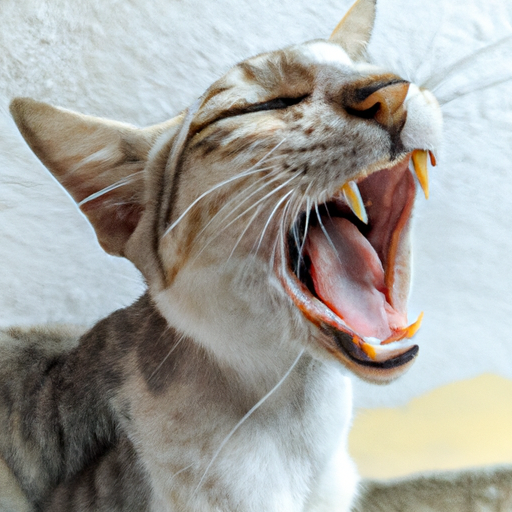
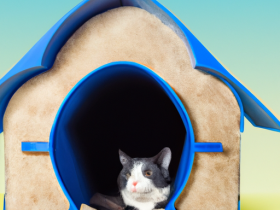
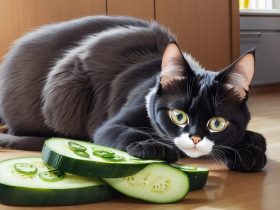
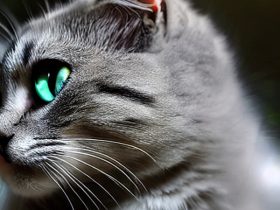
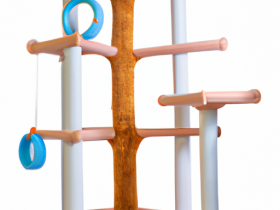
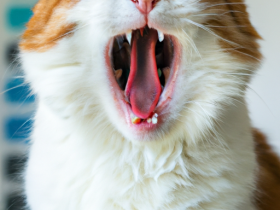
Leave a Reply
View Comments